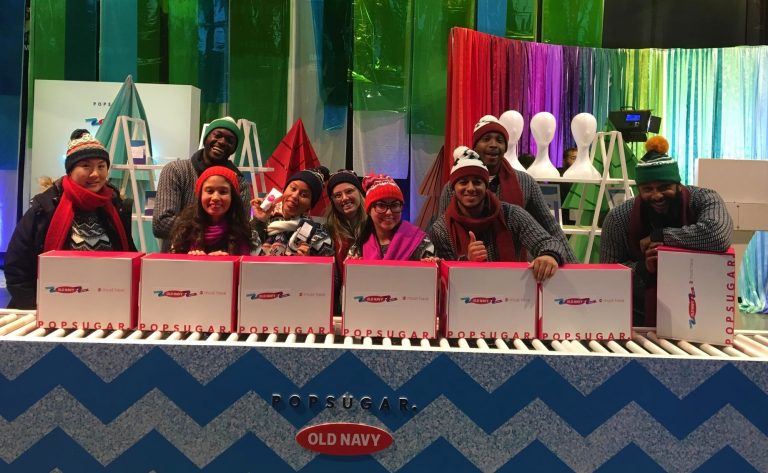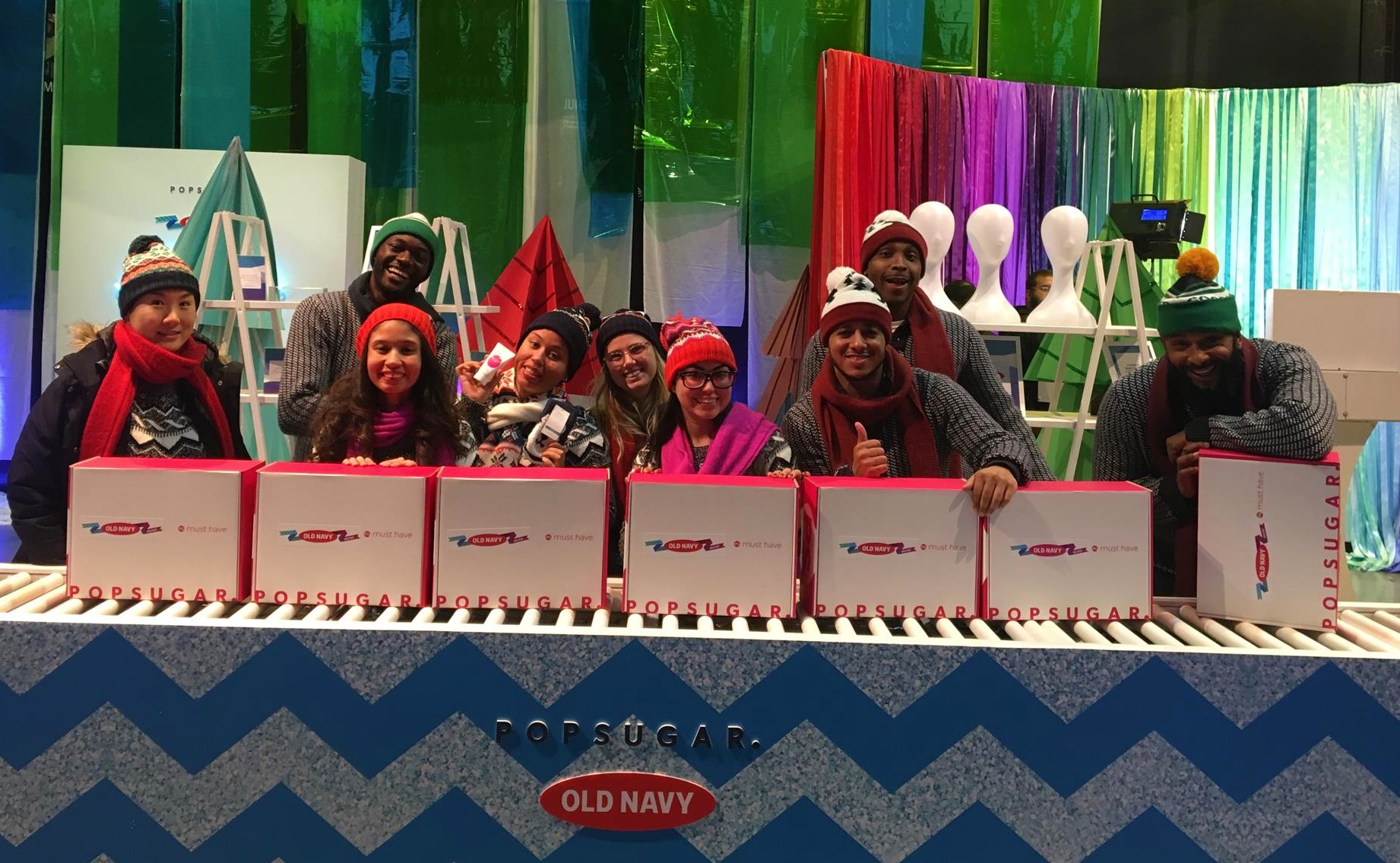11.07.19
By Lisa Major

The holiday shopping season is upon us and if 2018 was an indicator of how 2019 will be, retailers and brands can expect consumer expectations to be high. The good news for brick and mortar retailers is that more consumers are returning to stores for an in-person shopping experience. With that said, it’s more important than ever for physical retailers to create a unique shopping experience for customers.
Today’s customers want to be entertained, they crave experiences, and they expect companies to go above and beyond to earn their loyalty. In order to meet these expectations, retailers should turn to experiential retail strategies.
Experiential retail stems from experiential marketing. It combines shopping with entertaining, unique, and memorable experiences. Furthermore, it attracts customers, engages them, and creates two-way conversations that form deeper connections between customers and retailers.
The implementation of experiential tactics in the retail industry seems to be catching on as retailers realize that this strategy may be their saving grace. In fact, the Future of Retail 2018 reports that 55% of retail executives surveyed stated that by 2020 in-store experiences would be included in their marketing budgets.
Experiential retail can benefit retailers and brands, of any size, and with any budget. It works because it generates buzz, creates awareness, increases loyalty, gives customers something to talk about and better yet, something to share. It’s all about creating an experience that customers will enjoy, whether it’s an interactive product demonstration or simply offering a place for customers to relax.
In-store events and promotions attract customers and get them in your store, which is always a win during the holiday season. To drive people to your event, consider offering exclusive discounts and/or giveaways, provide snacks and beverages, and host activities for all ages.
+ In 2018, Wal-Mart hosted several in-store holiday events to drive customers in. The themed parties focused on toys, gift-giving, decorating, and party-planning. Additionally, customers could check out product demonstrations, take photos with Santa, and test out the hottest gifts of the year.
Pop up shops are an impactful and cost-effective option for both brick-and-mortar and eCommerce retailers. These customizable and temporary stores offer retailers a chance to increase brand exposure, offer exclusive merchandise, and “pop up” in new markets where they may not have a physical presence.
+ This year, the much loved Toys R’ Us brand is making a comeback with an immersive holiday pop-up experience. The Toys R’ Us Adventure will debut in Atlanta and Chicago and will feature interactive play areas and larger than life toys.
Consumers are constantly looking for exciting and interactive experiences to participate in. Interactive elements come in many different forms, making it suitable for any retailer. For example, retailers can offer VR & AR experiences, art installations, product demonstrations, or something simple, like a photo booth or prize wheel. Anything that is hands-on and gets people interacting with your brand is what you want to aim for.
+ Sephora is known for providing customers with a seamless shopping experience and as a result, they have some of the most loyal customers around. Using Sephora’s Virtual Artist app allows customers to virtually try out different products from their mobile device. By taking a selfie, the app will show customers what different products and colors will look like on them – taking the guesswork out of buying cosmetics.
The hustle and bustle of holiday shopping can be draining. Give your customers a place to relax and recharge. You can create a spa-like experience by offering comfortable seating, phone charging stations, relaxing music, and light snacks and beverages. For one, they will appreciate the break, and two, it will keep them in your store a little longer, giving you the chance to make an impression.
+ Lululemon offers customers plenty of opportunities to unwind in the brand’s first-ever experiential store. The Chicago store opened in August with 20,000 square feet of space that includes two fitness studios, meditations spaces, workspaces, and even a restaurant.
Technology continues to change our daily lives, including how we shop. With the help of tech-driven solutions like artificial intelligence, RFID technology, and interactive mirrors, retailers can personalize the shopping experience for each individual customer based on their preferences, previous purchases, and so forth.
+ Macy’s elevated the in-store customer experience by integrating digital technology at its fragrance counters. The technology allowed Macy’s to deliver brand messaging to customers for each fragrance that they offer. Anytime a customer touched or picked up a fragrance bottle, specific messaging, ratings, and reviews for that particular fragrance were displayed.
There are many ways to make the in-store experience a little more personalized. For instance, my favorite local boutique offers a personal shopper the moment you walk in the door, for free. For people like myself who don’t particularly enjoy shopping in-store, this is one thing that keeps me coming in.
+ The Adidas flagship store in Midtown New York offers the ultimate personalized experience. Customers can create a customized jersey in the screen print shop, test out running shoes on a miniature track, and get their stride analyzed all in one spot. All of those personal touches add up and create connections that resonate with shoppers. Even little things like loyalty programs and name recognition go a long way with customers.
Who you have representing your store or brand is just as important as the tactics you choose to execute. You can have the biggest, boldest, most shareable experience on the planet, but if your staff falls short, so will your efforts. Many retailers employ temporary sales associates during the busy holiday season, which is beneficial on many levels. However, if you are incorporating any type of experiential element, you’ll want to consider hiring experienced experiential marketing staff. Experiential staff, like brand ambassadors and product specialists, know how to attract and engage consumers on a deeper, more personal level. They know how to initiate conversations while subtly relaying key messaging which elevates the overall experience for customers.

ATN’s brand ambassadors are assisting with the Popsugar/Old Navy pop-up shop in NYC.
In order for retailers to succeed during this lucrative shopping season, they must be willing to take a big step outside of the box and provide shoppers with a memorable experience – one that makes the dreaded holiday shopping season fun again!